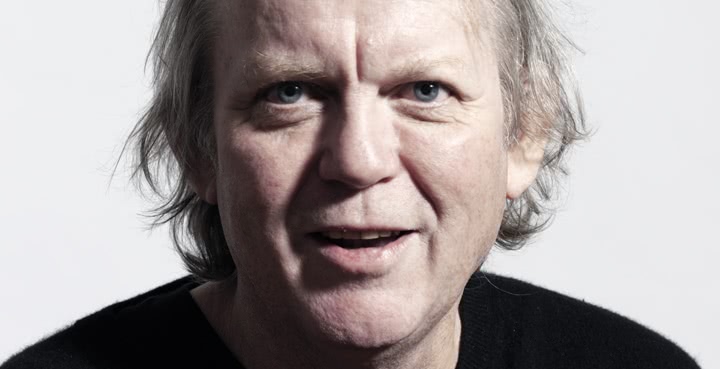In the world of music (and really, we’re talking every facet of it here – managing, promotion, A&R, touring, living, breathing, showering in music), there are few folk who can claim the versatility and experience of Michael Gudinski. Loved and loathed, he has amassed a reputation as one of the hardest-working figures in Australian entertainment history, with over 40 years of involvement in the careers of Kylie Minogue, Jimmy Barnes, Skyhooks and innumerable others.
Fitting, then, that one of the most respected names in music journalism, Stuart Coupe, settled on the idea of finally pinning the story of the Mushroom Records co-founder down for all to see.
“I felt a good need to write this book,” Coupe reflects upon the release of Gudinski. “I talked to a lot of people and read up on a lot of other sources. My job was partly made easier in that Michael didn’t want the book, it isn’t authorised. Yes, he had the right to correct factual errors. But it was really my interpretation of events. Part of that was built on talking to a lot of people who were off the record and not credited, and really weighing it all up. There are a lot of cases in the Gudinski book where my interpretation of events is very, very different to what I think he would like to see portrayed.”
Coupe laughs. He has a rather disarming conversational manner, quite affable and full of anecdote, but you don’t get to where Coupe is without having your eyes on the prize. He is a savvy guy, having worked across band management (Paul Kelly, for instance), radio and promotions, is director of Laughing Outlaw Records, and has some incredibly enviable interviews under his belt. If he isn’t living the dream, well, he’s at least on a neighbouring street.
“In my case it’s been a very charmed, lucky life. I emerged at a great time for music journalism. I started a fanzine, then a music magazine. I came to Sydney to work in the late ’70s and found myself on tour with Graham Parker, in a lift with KISS without their makeup on after a bomb scare, walking through Kings Cross with Tom Waits. Then I find myself in Paris interviewing Bruce Springsteen in ’81, and I think, ‘Alright, it can’t get much better.’ And then come along not one but two Bob Dylan interviews; you’re hanging at the George V hotel with Mick Jagger. You just have to pinch yourself. And I don’t pretend to be outstanding. Sure, I can string a sentence together. But a lot of it is right place, right time.”
Coupe’s experiences have certainly helped pave his sense of narrative. Gudinski is an entertaining, brilliantly paced construction. Gudinski himself is already such a larger-than-life figure that ensuring he did not become mythologised within the pages was a real concern for Coupe – the author must appear balanced, and the subject must seem sincere, even if it is only ever going to be an approximation of the real thing.
“[Gudinski] sat for a couple of interviews at the end,” says Coupe, “but for the whole process, prior to finishing the book, I’d spent maybe six hours in his company. Not a lot of time at all. Stylistically, I tried to find a way for the prose to reflect Michael’s voice. There is a lot more swearing in the book than I would put in normally, there’s a lot more staccato writing. I have no real idea, of course, what’s in his head, but I would find myself writing like how I would imagine Gudinski would speak. What people were thinking whilst they were dealing with him. And of course I’d met him back in the ’80s, and I’ve spent a lot of time with friends who have various stories about him and Mushroom. I’ve watched and I’ve listened, and I really just tried to get the sense of this crazy, fractured world that is Michael Gudinski.”
This is a remark worth repeating: rather than an encyclopaedic exposition of Australian music since the ’70s, or a history of Mushroom Records, this is the story of Gudinski the man. It is insightful, unexpected, well researched, speculative – much like, at the risk of drawing a long bow, the man himself. Yet what is arguably most compelling of all is that for all the roll-of-the-dice fortunes and failures depicted here, Gudinski remains a very real and accessible figure.
“Michael, at the end of the day, is a rabid music fan with a lot of business acumen. One of the things I try to show in the book is that he knows as much about contemporary music as anyone. It’s not because he necessarily goes out of his way to get across it personally, but because he’s a very smart man, he surrounds himself with people who keep him informed. Michael listens. If you call him up and tell him he needs to listen to, say, She-Rex, he’ll say, [speaking in a low, gruff voice] ‘Never heard of ’em. Any good?’ And mark my words, you see him four weeks later and he’ll either have signed them, or he’s totally moved on. That’s why he is who he is – he has this innate ability to tap into what’s going on out there. He’s always looking, and he always listens to what’s around.”
[Pictued: Stuart Coupe photo by Andrew Cowen]
Gudinski by Suart Coupe is out now through Hachette.

































